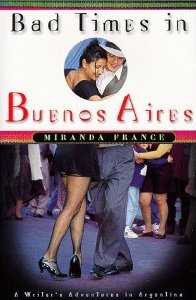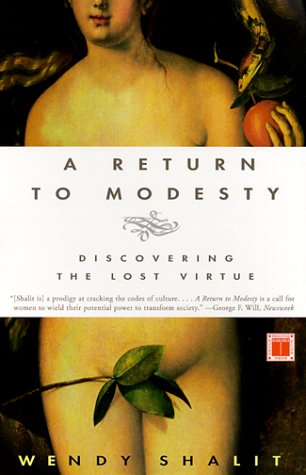"A man ought to read just as inclination leads him, for what he reads as a task will do him little good."—Samuel Johnson
| Reviews | Limericks | Six Words | Buy Nothing |
 3 November 1999
3 November 1999
The Dangerous Husband
Jane Shapiro
The narrator's romance begins like any other, floating on the blissful high of discovering a soulmate. Then reality hits: her beloved's endearing clumsiness turns worrisome. He makes a mess of the kitchen. Furniture collapses in his wake. The pets are afraid of him. She soon finds herself lusting after any man who can drink a glass of wine without spilling it. Then, attempting a good-morning kiss, her adoring husband breaks her arm. She starts to wonder: Whatever happened to his first wife, anyway? This darkly funny allegory will ring true to anyone, who, caught between loyalty and self-preservation, has seen firsthand how familiarity breeds equal parts love and contempt.
 11 October 1999
11 October 1999
The Pleasing Hour
Lily King
Arriving in Paris as an au pair, Rosie isn't looking for nightlife and adventure. Her family having fallen away from her bit by bit, she is now seeking solace in this strange country, from a brittle host mother who keeps her at arm's length. Rosie makes her home on the family's houseboat, and as her understanding of the language grows so does her bond with the children she cares for, but her developing relationship with their father threatens to undo all that she has gained. King's beautifully observed first novel travels into the past and back as each character's story unfolds and as long-buried secret sadnesses rise to the surface.
Also by King: The English Teacher
 21 September 1999
21 September 1999
Bad Times in Buenos Aires: A Writer's Adventures in Argentina
Miranda France
“An Argentine is an Italian who speaks Spanish and wants to be English,” goes a joke that reflects the ambivalence and unease in Argentine culture. In an engrossingly personal account, British travel writer France illuminates the capital city's ills by studying its recent history. The repression and murders of the Dirty War were never publicly acknowledged and the country lives with the awareness of those horrors simmering beneath its surface. Psychoanalysis is a major industry in Buenos Aires and “urban stress” a recognized killer. France vividly conveys the fever of the city and its conflicted appeal, embodied in the tango, a dance born of homesickness: sad, even angry, yet intensely passionate.
More travel writing: The Early Arrival of Dreams
 20 July 1999
20 July 1999
In Cold Blood
Truman Capote
First published in 1965, this is the granddaddy of true crime writing. Capote calls it a "nonfiction novel" about a real family who was murdered in rural Kansas in 1959. Both the victims and the killers are vividly portrayed, and the unraveling plan that resulted in the senseless deaths is nothing short of gripping.
More true crime: True Story, A Death in Belmont
 5 May 1999
5 May 1999
A Return to Modesty: Discovering the Lost Virtue
Wendy Shalit
At first blush, this call for modesty sounds like another blame-the-victim response to the problem of women's mistreatment at the hands of men. But Shalit, while believing in radical differences between the sexes, would never point to women as inferior. She believes that a culture that advocates women's total sexual freedom and equality degrades their status and leaves them unhappy and even in danger. We no longer have the social support provided in the past by expectations of, and codes of conduct for, both sexes. This leaves girls and women subject to sexual harassment and stalking, to being told to get over their "oversensitive" preference for romance over casual sex, and to stifle their "codependent" interest in relationships. Shalit advocates a rediscovery of the values of male honor and female virtue, not only as guidelines for creating a more civil society but because of the erotic potential in mystery and restraint.
 16 March 1999
16 March 1999
Evening News
Marly Swick
The terrible story makes the papers and the TV news: A boy playing with a gun has accidentally shot and killed his baby sister. From the moment of the accident through the following days, weeks, and even years, Swick's novel shows us the impact of the tragedy, felt long after the news has faded. An already fragile stepfamily is fractured by the event: both parents have lost a daughter, but only one parent has a son who caused her death. Swick tackles the tough subject with skill, exploring the interplay of parental love, allegiance, blame, and responsibility amidst a pitch-perfect portrayal of life in the modern American suburbs.
 28 January 1999
28 January 1999
Close to the Bone
Jake Lamar
The novel begins with a question posed to five men at a workshop: “What is a black man?” In the months leading up to the O.J. Simpson criminal verdict, the lives of these men, and those of the women they're involved with, become deeply entwined. Lamar's sly and perceptive wit shows no favor; he skewers the buppie businessman, his preppie white girlfriend, and the pompous self-help guru alike. However, he stops short of parodying his characters, creating instead a fresh, complex and very realistic look at the issues of race, sex, and class in America.
Fiction with similar themes: A Ship Made of Paper
"There was so much to read, for one thing, and so much fine health to be pulled down out of the young breathgiving air...I was rather literary in college—one year I wrote a series of very solemn and obvious editorials for the Yale News—and now I was going to bring back all such things into my life and become again that most limited of all specialists, the 'well-rounded man.' This isn't just an epigram—life is much more successfully looked at from a single window, after all."—F. Scott Fitzgerald, The Great Gatsby
Copyright © 1996–2026 So Much to Read
Contact: books at so much to read dot com